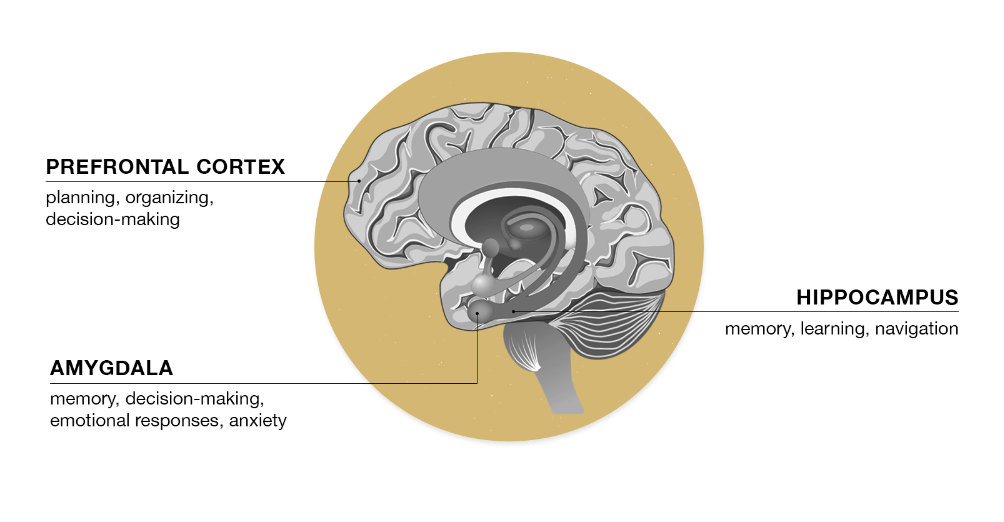A therapist CU Anschutz explains that significant fluctuations in estrogen can lead to issues with thinking and memory, as well as increase the risk of depression and anxiety.
How Does Menopause Affect the Brain?
Women in their late 40s or early 50s may begin noticing changes in their cognitive abilities, such as difficulty concentrating, organizing, or recalling words. These changes may raise concerns, but they do not indicate a mental decline; instead, they often relate to menopause-related shifts in the brain. According to Christina Metcalf, PhD, assistant professor in the Department of Psychiatry at the University of Colorado School of Medicine, menopause can bring about brain-related symptoms like mood swings, sleep issues, and cognitive challenges, including trouble with memory and decision-making.
What Is Menopause and When Does It Start?
Menopause is the natural end of menstruation and fertility, typically occurring between the ages of 51 and 52. This transition starts with perimenopause, when menstrual cycles begin to change, and ends when periods have completely stopped, marking the post-menopausal stage. The process varies for each woman and lifestyle and genetics often influence it, spanning several years and moving through distinct stages.
Why Do Brain Changes Happen During Menopause?
Estrogen, particularly estradiol, plays a critical role in a woman’s brain during her reproductive years. It influences areas like the pre-frontal cortex, which handles planning and organizing, and the hippocampus, essential for memory. As estrogen levels fluctuate during menopause, they affect these brain regions, leading to symptoms like hot flashes, mood swings, and cognitive difficulties.. Other hormones, like progesterone, also contribute to these changes, further complicating the brain’s functioning.
How Do Brain Changes Cause Problematic Symptoms?
Brain changes during menopause can result in cognitive symptoms that may resemble attention deficit hyperactivity disorder (ADHD). Women often report struggles with verbal memory, executive functions like planning, and organization. Menopause also brings a higher risk of depression, with a two-fold increase in depressive episodes, particularly in women with a history of depression. Sleep disruptions caused by hot flashes or night sweats can further impact cognitive functioning and mood.
Is Menopause-Related Memory Loss Linked to Dementia?
During menopause, people typically do not link memory problems to dementia, which is rare in midlife. Most cognitive issues, such as forgetfulness or difficulty concentrating, are temporary and tend to resolve once a woman reaches post-menopause. However, if cognitive concerns become severe and disrupt daily life, neuropsychological testing may be advisable to rule out other conditions.
What Can Be Done to Alleviate Brain-Related Symptoms of Menopause?
Several lifestyle changes and treatments can help alleviate the cognitive and emotional symptoms associated with menopause, including:
Exercise: Engaging in 150 minutes of moderate or 75 minutes of vigorous activity weekly, as recommended by the American Heart Association.
Smoking cessation: Quitting smoking can improve overall health and cognitive function.
Stress reduction: Finding healthy ways to manage stress, such as therapy, meditation, or community involvement.
Sleep improvement: Using sleep hygiene techniques or cognitive behavioural therapy for insomnia if necessary.
Dietary adjustments: Following a Mediterranean diet rich in fruits, vegetables, and high-fiber foods while limiting processed items.
Women are encouraged to seek advice from healthcare providers who specialize in menopause. Hormone therapy may be an option for some women, while antidepressants can help those experiencing depression. Websites like the American College of Obstetricians and Gynecologists and the Menopause Society offer reliable information.
While all women will experience menopause at some point, researchers need to conduct more studies to fully understand and treat the cognitive challenges it brings.



